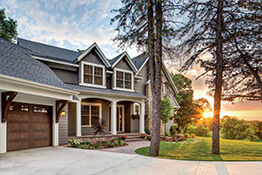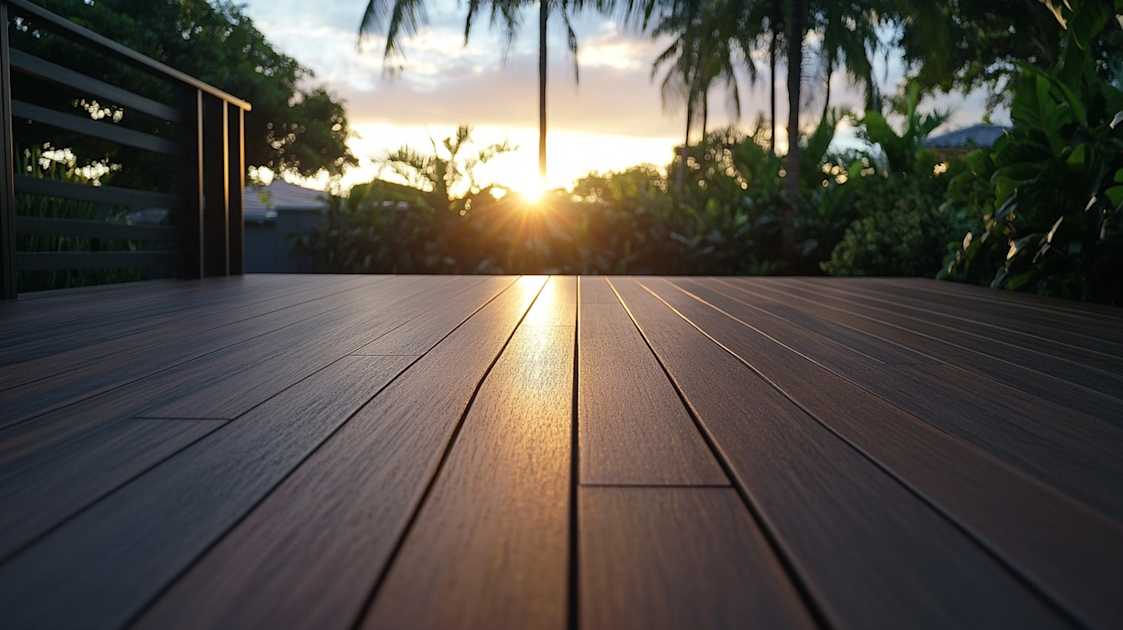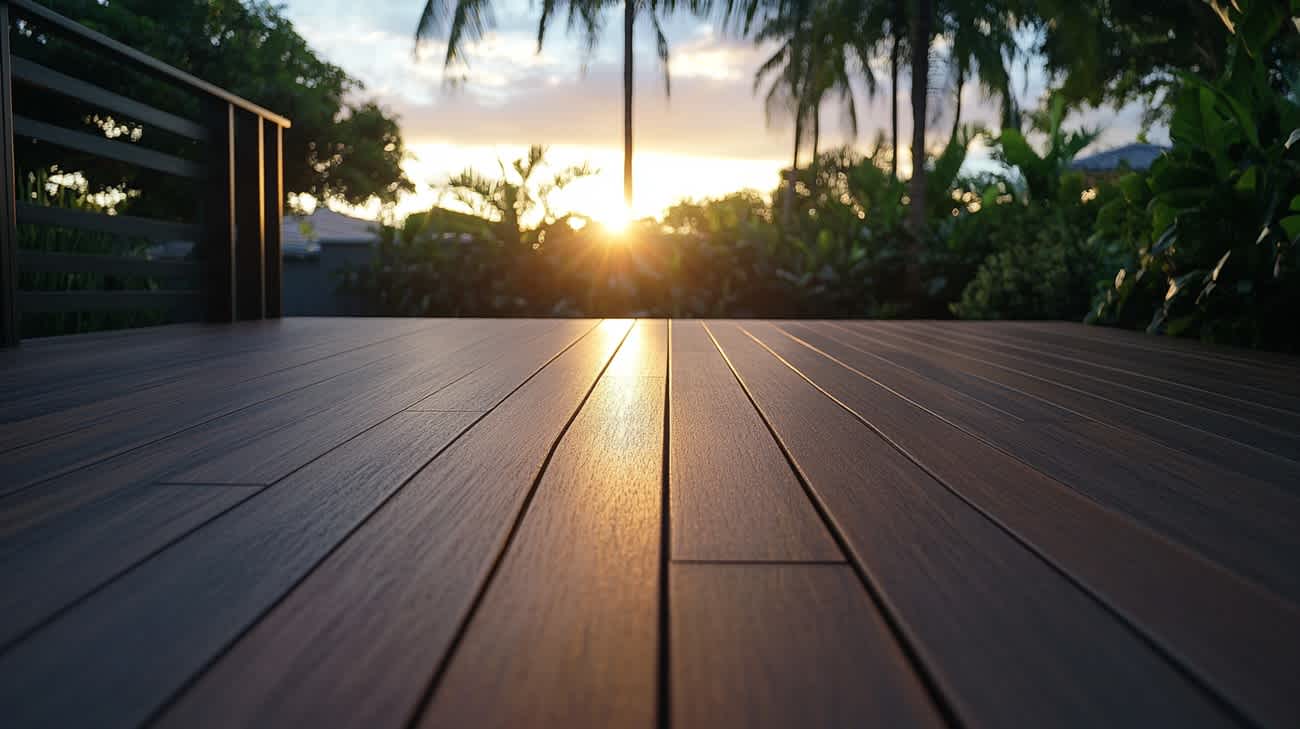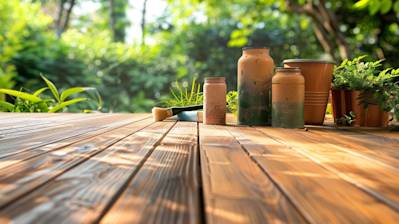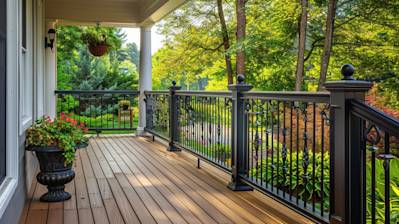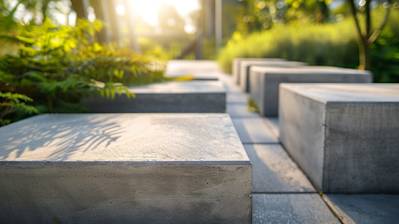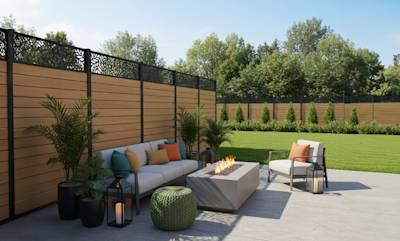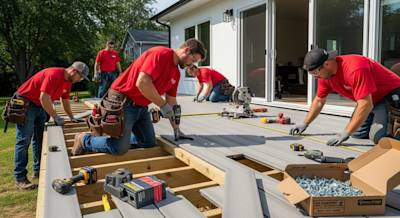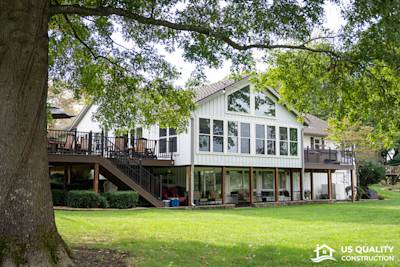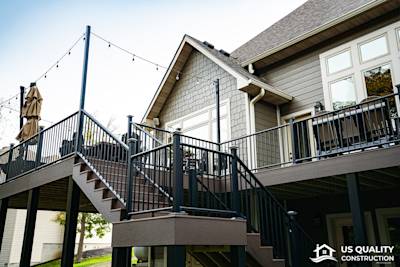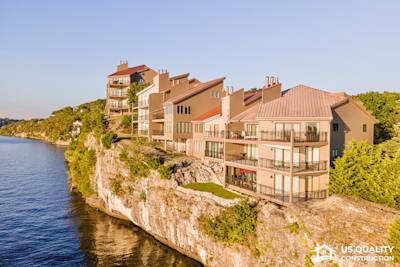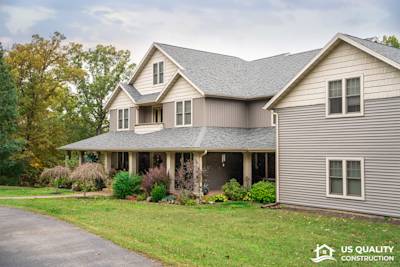In the realm of outdoor decking and construction, one particular wood species continues to captively command attention - Ipe Wood. Touting an impressive resume of strength, durability, and aesthetics, this tropical hardwood hails from the rainforests of South America. If you're considering a wooden deck, patio, or even indoor flooring, you've likely stumbled upon this term quite a few times. Let's unravel the mystery and dive deep into the world of Ipe Wood.
Overview: What is Ipe Wood?
Ipe Wood, scientifically known as Handroanthus spp., is a collective term for a variety of species native to South America primarily in Brazil. Also known as Brazilian Walnut or Ironwood, the lumber, renowned for its unrivaled durability, derives the 'ironwood' nickname from its dense and weighty characteristic, rivaling the strength and hardness of many metals. With an inherent resistance to rot, decay, insects, and even fire, Ipe Wood makes a convincing argument in its favor for any outdoor or indoor construction project.
Characteristics of Ipe Wood
Perhaps you're wondering what specifically marks Ipe Wood as a 'super-wood' of construction. Let's delve into some specific characteristics of this exquisite material:
- Hardness and Durability: Ipe Wood tops the charts on the Janka hardness test, a standard measure of the resistance of wood to dents and wear, with a rating of 3680 pounds-force. In other words, Ipe can easily outlast standard decking materials, sometimes lasting up to an astonishing 75 years.
- Diverse Color Range: From a rich brown to an exotic reddish hue, Ipe Wood's palette spans a broad spectrum, adding an aesthetic flair to complement its toughness.
- Inherent Resistance: Ipe Wood is naturally resistant to rot, fungal decay, and many types of insects, including termites. Moreover, it also possesses high fire resistance, equivalent to concrete or steel.
Invest in Ipe Wood: Unmatched Longevity and Aesthetic Appeal
Given all of its qualities, Ipe Wood is an investment that pays dividends over the long term. Whether it's about the decking around a pool, a dream patio, a majestic boardwalk, or an interior flooring project, Ipe provides a delightful blend of durability and elegance.
Indoor Flooring and Furniture
While it may command higher upfront costs, Ipe Wood's competitive edge lies in its longevity. The material promises decades of service, effortlessly enduring heavy foot traffic and resisting wear and tear. Its density and weight lend a sturdy feel underfoot, and its stunning palette fits just about any décor.
Moreover, Ipe's sturdiness and visual appeal also make it a preferred choice for furniture. The heavyweight wood creates robust, stable structures that endure daily usage with minimal wear, and its vibrant colors are sure to stand out in your interior design.
Outdoor Decking and Construction
In outdoor settings, Ipe Wood shines with its superior resilience against environmental elements. Be it resistance to water, sun exposure, or microbial decay, Ipe is well-adapted to withstand the works.
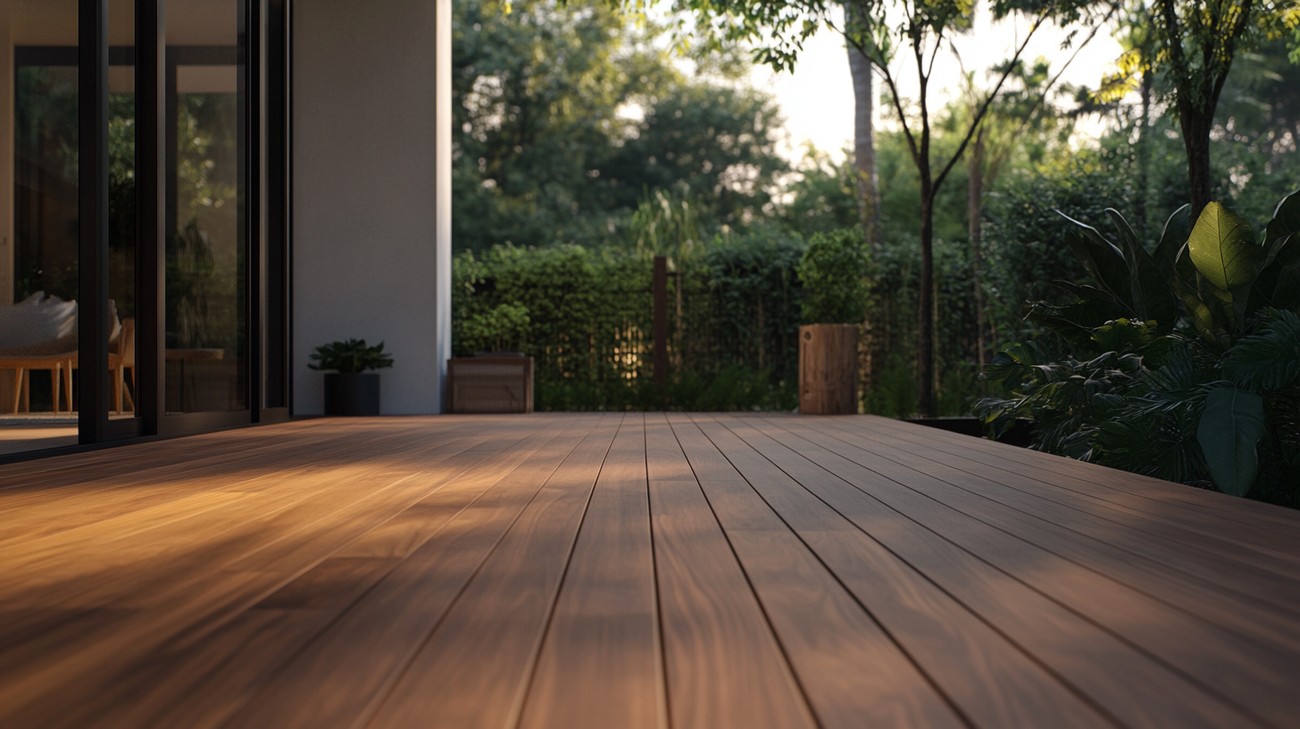
Frequently Asked Questions about Ipe Wood
How durable is Ipe Wood?
Ipe Wood is known for its extraordinary durability. It naturally resists mold, mildew, insects, and decay which contributes to its lifespan of up to 50 years or more. It is also resistant to scratches and slivers, which makes it a great choice for high-traffic areas and outdoor use.
How hard is Ipe Wood?
Ipe Wood is one of the hardest woods in the world. On the Janka hardness scale, it's more than three times harder than oak. This hardness is what contributes to its resilience and long lifespan.
Is Ipe Wood sustainable?
Sustainability of Ipe Wood largely depends on sourcing practices. It is possible to find suppliers who harvest ipe wood sustainably from well-managed forests. Look for suppliers who can provide evidence of certification from organizations like the Forest Stewardship Council (FSC) to ensure the Ipe Wood you purchase is responsibly sourced.
Can Ipe Wood be painted or stained?
Due to its natural oils and density, Ipe Wood does not absorb paint or stain as well as other wood types. It's usually best to leave it in its natural state. However, if you do decide to paint or stain it, be sure to use high-quality products designed for hard, dense woods.
How does Ipe Wood react to fire?
Ipe Wood has a Class A fire rating, the same rating given to concrete and steel. Its inherent fire resistance along with its resistance to decay and insects make it a popular choice for decking and other exterior applications.
Does Ipe Wood warp or crack?
Because of its density and natural oils, Ipe Wood is highly resistant to warping and cracking. The denseness of the wood also keeps it from splintering easily. However, even Ipe Wood can warp or crack a bit if it's not installed correctly or if the wood isn't given time to acclimate to its new environment.
How do I clean Ipe Wood?
Cleaning Ipe Wood is easy and straightforward. For general maintenance, a simple mix of mild soap and warm water will do the trick. Use a soft bristle brush to scrub the surface gently. If the wood has deep stains or mildew, there are special cleaners available that are specifically designed for use with tropical hardwoods like Ipe.
What tools do I need to work with Ipe Wood?
Ipe Wood's hardness and density require strong, sharp tools for effective woodworking. Carbide-tipped saw blades are recommended for cutting, and high-quality drill bits are needed for pre-drilling holes.
How do I install Ipe decking?
Given the extreme hardness of Ipe Wood, pre-drilling is necessary before screwing or nailing into it. It's also recommended to use high-quality stainless steel screws for ipe decking to resist any corrosion. Also note that due to its density, Ipe Wood doesn't bend or flex as easily as softer woods, so ensure your deck framing is correctly installed with minimal joist spacing.
Is Ipe Wood pet-friendly?
Yes, Ipe Wood is a great choice for families with pets. Its hardness and resistance to scratching mean it holds up well to claws, making it an ideal choice for decks or outdoor pet enclosures. However, as with any wood, pets should not be encouraged to chew or ingest the wood as it could harm them.

Pros of Ipe Wood
Impressive Strength and Durability
Ipe wood is known for its exceptional hardness and durability. It is much stronger than other common decking materials and can easily support the weight of heavy outdoor furniture, cooking appliances, and groups of people. When properly installed and maintained, an ipe wood decking can last anywhere from 25 to 50 years.
Resistant to Insects, Rot, and Decay
Another benefit of ipe wood is its natural resistance against destructive elements such as insects, moisture, rot, and decay. This resistance comes from its high density and natural oils. Termites and other wood-boring insects find it nearly impossible to penetrate ipe’s dense fibers.
Fire Resistant
Ipe's resistance doesn't stop with insects and rot. It also has a Class A fire rating, which is the highest rating available. This makes it as fire-resistant as steel or concrete.
Aesthetically Pleasing
Ipe wood boasts a rich, deep color that many homeowners find attractive. Its smooth texture and tight grain create a refined, professional appearance that ceilings or composite decking materials often can't match. Moreover, with proper care, the wood's color can be preserved and will remain beautiful for many years to come.
Environmentally Friendly
Unlike many synthetic and non-sustainable wood resources, ipe is a renewable resource. Proper harvesting does not hurt the tree or the surrounding ecosystem. With increasing concern for the environment, using ipe wood contributes toward responsible and sustainable construction.
Low Maintenance
While it is true that ipe wood requires some upkeep, the level of maintenance is quite low compared to other decking materials. Most homeowners find that annual oiling is sufficient to keep an ipe deck looking its best. This minimal maintenance requirement makes ipe an attractive option for busy homeowners.
Cons of Ipe Wood
Expensive
Ipe wood is one of the most expensive decking materials on the market. While its durability and beauty justify its high cost, it might be out of budget for some homeowners.
Hard to Work With
Ipe’s impressive hardness presents a drawback: it's difficult to work with. Most home carpenters and builders find that they must use carbide-tipped saw blades and pre-drilled holes for screws during installation.
Weight
Another negative aspect of ipe wood's density is its weight. It is heavy, which can add significant weight to your outdoor living space. This could potentially require additional support structures, increasing the overall cost and labor of your project.
Regular Maintenance
Even though ipe wood requires less maintenance compared to other decking materials, it still needs regular cleaning and periodic oiling to prevent drying out and preserve its rich color. If this maintenance is neglected, the deck can become dull and susceptible to surface checking.
Environmental Concerns
While ipe is a renewable resource, improper harvesting and deforestation have raised concerns about the sustainability of its use. It is important for buyers to ensure that their ipe wood is sourced from a supplier who practices responsible and sustainable harvesting.
Availability
Because ipe wood comes from specific regions of Central and South America, availability may be limited. This can cause an increase in price and longer wait times for material delivery.

Myths and Misconceptions about Ipe Wood
Ipe wood, also known as Brazilian Walnut, has gained popularity for its durability, hardness, and beauty. However, several myths and misconceptions surround this high-quality material. This section will delve into and debunk those commonly held misconceptions about ipe wood.
Myth 1: Ipe Wood is Indestructible
Reality:
Ipe wood is known for its extreme hardness and higher-than-average durability when compared to other wood types. Its dense nature allows it to withstand pests, decay, and even fire to some extent. However, the belief that ipe wood is indestructible is a myth. All wood, including ipe, will eventually show signs of wear and tear, especially if not maintained properly.
Ipe wood may be resistant to many forms of damage, but it is not entirely impervious. For instance, it can endure outdoor elements but still turn silver-grey when exposed over time if not treated with a UV protectant.
Myth 2: Ipe Wood is Maintenance-Free
Reality:
While Ipe wood requires fewer maintenance efforts compared to other wood types due to its natural resistance to decay and pests, it is not entirely maintenance-free. Ipe decks, for example, usually require occasional oiling to retain their rich brown color. Failure to apply a UV blocking finish will result in the ipe wood turning to a patina grey over time. Plus, although ipe wood is rot-resistant, it's best practice to keep it dry as often as possible to prolong its lifespan.
Myth 3: All Ipe Wood is Harvested Legally and Sustainably
Reality:
With increasing demand for ipe wood, illegal logging has unfortunately become a problem in many areas where the tree is native, particularly in South America. Not all ipe wood is sourced responsibly, leading to environmental issues and exploitation of resources. When buying ipe wood, customers should look for certification from organizations like the Forest Stewardship Council (FSC) to ensure that the wood has been legally and sustainably harvested.
Myth 4: Ipe Wood is Too Hard To Work With
Reality:
Ipe wood is indeed one of the hardest woods available, making it a little bit more difficult to work with compared to other types of wood. Nevertheless, it's not impossible to work with. With the right equipment and techniques, ipe wood can be successfully cut, drilled, and installed. It's suggested to use carbide-tipped saw blades and high-quality drill bits to prevent damage to your tools.
Myth 5: Ipe Wood is Too Expensive
Reality:
There is a misconception that ipe wood is unrealistic for budget-conscious projects due to its high cost. It is true that ipe wood is often more expensive upfront than other types of wood. However, when you take into consideration its longevity, durability and the potential savings from not having to replace or repair it as frequently, ipe wood can indeed be a cost-effective choice in the long run.
Myth 6: Ipe Wood Is Not Suitable For Cold Climates
Reality:
There is a common belief that ipe wood is only suitable for tropical or warm climates and will crack or warp in cold climates. The reality is that ipe wood's density and stability makes it well-equipped to handle temperature changes, including cold climates. Ipe's dimensional stability means it is less likely to warp, shrink, or expand, whether the climate is hot, cold, wet, or dry.
In conclusion, though ipe wood does boast several impressive properties, it's important to separate fact from fiction to understand its characteristics fully and use it most effectively for your needs. Always verify the sourcing of your ipe wood for ethical concerns, prepare properly for working with this hard material, and remember no wood is truly maintenance-free or indestructible. With correct information and application, ipe wood can indeed be a strong, beautiful, and durable choice for your projects.
Summary
So, there you have it - Ipe wood is a top-tier choice for decking and outdoor projects, and it's not hard to see why. It has a natural resistance to rot, decay, insects, and even fire. Plus, it's durability means it can last up to 50 years or even more without much maintenance.
What sets Ipe wood apart is its striking beauty that many regard as unparalleled. With its rich, dark brown hue and tight grain pattern, it's definitely got an attractive appearance that adds value and aesthetics to any space. But remember, as fantastic as it is, be sure to source it responsibly to ensure that we don’t contribute to deforestation.
Finally, we come to cost. Yes, Ipe wood has a higher initial cost compared to other woods, but considering its longevity and low maintenance, it can turn out to be a more economical choice in the long run. So, if you're looking for a hard-wearing, beautiful, and reliable wood for your outdoor construction, Ipe wood is an investment worth considering.
About US Quality Construction
At US Quality Construction, we're more than just a company, we are an established part of Kansas City, MO. Founded with the aim of delivering unparalleled construction services, we have grown to be a trusted name in the industry. Our commitment to quality, drive for perfection, and focus on customer satisfaction have earned us the reputation of providing reliable and efficient construction solutions. With a talented team of skilled professionals, we’re continually providing a combination of innovative design, excellent craftsmanship, and top-notch technology. So, when you're looking for a construction company that has expertise, experience, and your best interests at heart, you can always rely on us.
Tags: hardwood, decking, sustainable,
